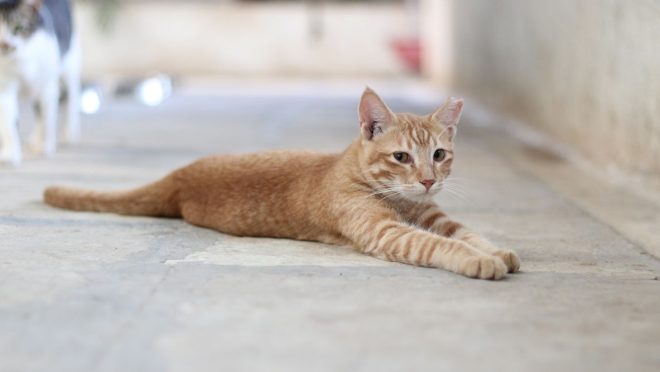Caring for our whiskered neighbours: A kinder future for stray cats in Bangladesh
Caring for our whiskered neighbours: A kinder future for stray cats in Bangladesh

Every day, scruffy, underfed cats roam our streets, slipping by mostly unnoticed. Some passersby may offer a few scraps of food (if they’re lucky enough), but it’s never enough to meet their real needs. On 16 October, Global Cat Day, we pause to take a closer look at their lives, understand their struggles, and explore how communities can step in to provide proper care.
The harsh reality on the streets
A 2009 study by Bangladesh Agricultural University found that nearly 89% of stray and unowned cats were infested with parasites like fleas and mites, causing painful skin infections and breathing problems.
Many end up in shelters too sick for adoption, often leading to their euthanasia. Life on the streets makes these cats sick, and illness limits their chances of survival. And when they arrive at the shelters, they often need more care than many shelters can provide.
A day to raise awareness and inspire action
It is because of the daily suffering of stray cats that initiatives like Global Cat Day exist. This worldwide day of action began as National Feral Cat Day in the United States in 2001; it was started by Alley Cat Allies to protect the lives of unowned cats. Over the years, the movement’s message of compassion and humane solutions spread globally. Today, Global Cat Day serves as a reminder of the challenges these cats face and the urgent need for communities to step in and help.
A kinder, smarter solution
While the challenges faced by stray cats are daunting, there is hope. Humane and effective solutions are being practised worldwide to address their suffering, most notably Trap-Neuter-Return (TNR). Instead of being caught and killed, stray cats are humanely trapped, taken to a vet to be spayed or neutered (preventing endless litters of kittens), and treated for parasites and diseases. Once healthy, they are returned to their familiar territories to live peacefully, breaking the cruel cycle of illness and euthanasia while improving the well-being of both cats and communities.
Bangladeshi heroes leading the change
Thankfully, in Bangladesh, we have local volunteer groups dedicated to this very work. Organisations like Obhoyaronno and the Stray Animal Foundation of Bangladesh (SAFB) run community sterilisation and vaccination drives to control the stray population humanely. Meanwhile, groups like Care for Paws and the PAW Foundation BD are on a humane mission as well, rescuing injured cats and dogs, nursing them back to health, and finding them loving homes. These groups rely on the support of people like us to continue their lifesaving work.
How to be part of the solution
There are many ways you can help improve the lives of Bangladesh’s stray cats. You can support local animal welfare organisations by contributing your time, skills, or resources, or by helping raise awareness in your community about humane solutions like Trap-Neuter-Return (TNR).
Simple everyday actions also make a difference; leaving out fresh water, feeding cats responsibly, or ensuring they have a safe shelter can significantly improve their wellbeing. Even sharing accurate information about the challenges these cats face and the ways to help can inspire others to take action.
On October 16, let’s start making our neighbourhoods more compassionate for stray cats. Remember, even a small paw can make a big difference!


